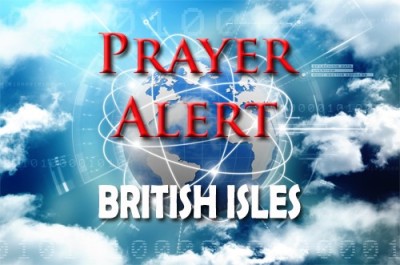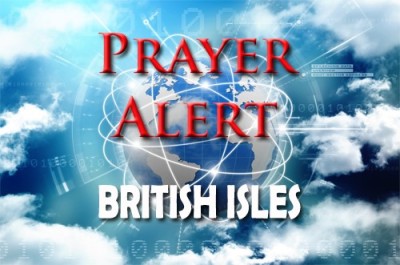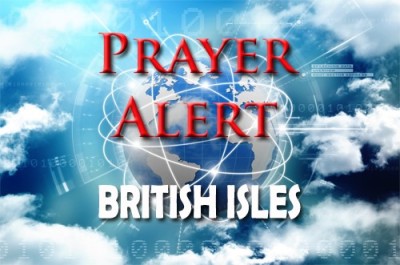A recent High Court decision in Malawi has ignited significant national debate by ruling that a 14-year-old girl, pregnant due to rape, must be granted access to a safe abortion. The judgment held that denying such care violates protection under the Gender Equality Act, and that girls impregnated through sexual offences automatically qualify for legal abortion services. Faith leaders, including Catholics, Protestants and Muslims, have warned that the ruling could set a far-reaching precedent in a country where abortion remains almost entirely criminalised except to save the mother’s life. They argue that expanding legal access risks reshaping national policy without public consensus, and intend to challenge the decision through legal and governmental channels. Meanwhile, advocates for reform say restrictive laws force vulnerable women and girls toward unsafe procedures, contributing to maternal deaths, though data on abortion-related mortality remains contested. As both sides mobilise, Malawi faces a pivotal moment in balancing the protection of life with urgent concerns for justice, safety and healthcare for survivors of sexual violence.
Mali: abuses by former Wagner mercenaries
27 Nov 2025Testimonies from refugees in Mauritania reveal severe human rights abuses committed during counter-insurgency operations in Mali involving Russian mercenaries formerly associated with the Wagner Group. Witnesses describe arbitrary detentions, torture, and extrajudicial killings as civilians were accused of aiding jihadist insurgents. One former shopkeeper recounted being detained, threatened, and mistreated before later fleeing the country with his family. Others reported loved ones killed without explanation or being beaten while performing everyday tasks like herding livestock. Human rights monitors say these actions have spread fear and driven tens of thousands to flee across the border. Although Wagner has formally withdrawn, many of its operatives are now part of Russia’s Africa Corps, and concerns remain that abuses continue under a new name. Calls are growing for accountability and justice for victims, as communities struggle with trauma, displacement, and the loss of safety in their homeland.
The devastating civil war in Sudan continues, with renewed international pressure for a ceasefire. The RSF, locked in conflict with the army since April 2023, has announced a three-month humanitarian truce. It says the move is in response to global diplomatic efforts, including initiatives from the Quad mediators (the USA, Saudi Arabia, the UAE, and Egypt). However, deep distrust remains. Army chief Abdel Fattah al-Burhan rejected the US-backed proposal, calling it biased due to the UAE’s involvement and accusing the mediators of favouring the RSF. There are persistent allegations that the UAE is secretly arming the RSF, though it denies the claims. The conflict’s political roots remain unresolved: proposals have suggested transitions toward civilian rule without either military faction holding power - an idea the army has strongly opposed. In October the RSF seized the key Darfur city of El-Fasher after a relentless siege which sparked warnings of crimes against humanity and genocide. The warring parties have so far violated every ceasefire agreement.
Kelvin Burke’s life was for ever changed at age 23 when a tragic accident in the Lake District left him a paraplegic, ending his promising hockey career and dreams of the Olympics. Raised in a strong Christian family in Northern Ireland, he had already seen the devastating effects of IRA violence on others, including his beloved hockey teacher. After the crash, Kelvin fought for survival in hospital while believers around the world prayed. Though his physical future seemed bleak, he experienced deep encounters with God, including a vision of Christ sharing his tears and suffering which renewed his hope. He went on to lead youth ministry, train for ordained ministry, and later serve as a hospital chaplain, where he saw many come to faith and find healing. Though still longing for physical restoration, he gratefully testifies to God’s daily sustaining grace, a loving marriage, and a life used for God’s glory, echoing Jesus’ own prayer: ‘Not my will, but yours be done’.
The decision by a Dorset almshouse to sell a rare 15th-century Flemish altarpiece has opened an unexpected path toward expanding its longstanding mission of caring for those in need. The Almshouse of Saint John the Evangelist and John the Baptist in Sherborne discovered the artwork’s extraordinary value only after asking Sotheby’s to store it during building work. Expert analysis revealed that the oak triptych, depicting five miracles of Christ including the raising of Lazarus, was crafted in late-medieval Brussels and could fetch £2.5–£3.5 million at auction. The trustees unanimously agreed that selling the piece would best serve the local community, noting that the costs of securing, conserving, and insuring such a valuable object would be unsustainable for a small charity. Proceeds from the sale are expected to fund the remodelling of the almshouse to create six new independent-living homes and support ongoing maintenance of the Grade I listed building, furthering its 600-year-old mission.
Kemi Badenoch has warned that the country risks bankruptcy if Labour raises taxes without reducing welfare spending. She accused Rachel Reeves of planning a ‘stealth tax bombshell’ in the upcoming Budget to fund increased benefits, including what most people believe is likely - scrapping the two-child benefit cap to address child poverty. Freezing income tax thresholds is also expected, which would draw more workers into higher tax brackets. Badenoch argued that welfare cuts are necessary for long-term economic stability, saying her party would restore the cap if returned to power. Labour strongly rejected her claims, warning Conservatives would return the country to austerity, resulting in cuts to schools, hospitals, and policing. Other parties also criticised the Conservatives’ stance; Nigel Farage has proposed deeper spending cuts, and the Liberal Democrats have called both major parties punitive toward the public. As competing visions collide, the Budget will be a major test of how Britain balances fairness, economic security, and social responsibility.
Keir Starmer has urged religious leaders to help strengthen social unity in the UK, expressing deep concern about divisions affecting communities nationwide. Speaking at a Downing Street reception during Interfaith Week, he praised the vital contributions of faith groups while acknowledging that recent violence - including attacks on a Manchester synagogue and a mosque in East Sussex - has tested interfaith harmony. Starmer said the country is at a fork in the road, with a choice between shared patriotic renewal or a descent into toxic division marked by racism, hostility, and rising online abuse. He said he wanted to serve the whole country ‘in all its reasonableness, its practicality, its tolerance, its live and let live, and its diversity.’ He finished by making a commitment to continued work with faith leaders to bring about change, commenting, ‘This has to be a partnership. We will play our part, but we recognise we can’t do it on our own.’
Immigration: home secretary’s new proposals
20 Nov 2025Shabana Mahmood is under mounting pressure to provide clarity and compassion after confirming that only a ‘few hundred’ asylum seekers will initially be admitted under the UK’s newly-announced ‘safe and legal’ routes. The home secretary has paired these routes with strict measures, copying Danish policies, aimed at deterring illegal crossings, including asset confiscation and the enforced removal of families who decline financial incentives to return home. Critics - including Labour MPs, refugee advocates, and UNHCR - argue that such limited pathways will do little to reduce dangerous Channel crossings or support those fleeing war and persecution. Organisations warn that people cannot afford to wait years for routes to expand, and that uncertainty will only deepen despair. Additionally, proposals to withdraw financial support from families with denied claims have sparked moral outrage, particularly over their impact on children. As the Government seeks to reshape asylum policy, many insist that protection, dignity, and fair family reunification remain essential to any credible system.







